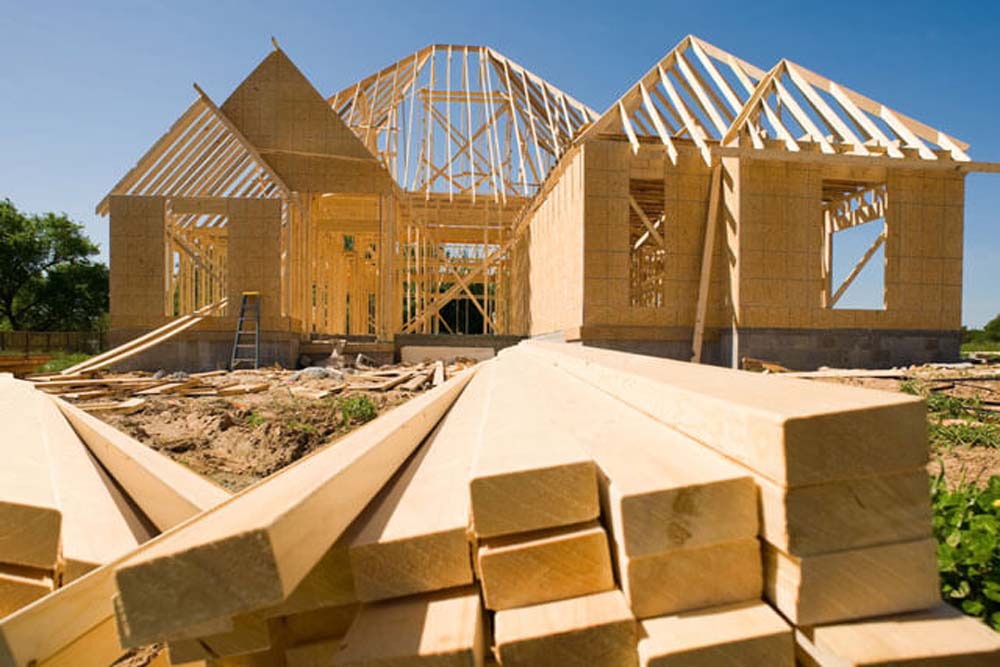Home prices are up, and that concerns some buyers. If you have a home buying strategy, though, there are ways to avoid overpaying for a home even in a seller’s market.
How to avoid overpaying for a house
Are you buying a new home because of a marriage, baby, or divorce? Life often dictates when it’s time to buy a house. You can’t always wait for the perfect real estate market. But, you may be asking yourself am I overpaying for my house?
It’s possible to find a reasonably priced home even in a seller’s market.
Home buyers who follow these 10 steps, will buy a house that fits their budget.
1. Create a housing wish list
It’s easy to go online and shop for a new home. While it’s tempting to look at all the pretty housing pictures, don’t do it. Wait until you create a housing wish list. You don’t want photos to change your perspective on what you want in a home.
Create a list of ten must-have items in your new home, ten negotiable items, and ten dream amenities in your new home. This list is your foundation for finding a home you’ll love without overpaying for it.
2. Create a housing budget
Once you know what you want in a home, it’s time to set a budget. Don’t peek at those listing photos just yet. Don’t worry. The time is near.
First, create a housing budget. How much are you willing to pay each month while still meeting your long and short-term financial goals? Don’t forget an emergency fund.
There are plenty of housing calculators that make it easy to come up with this monthly figure. They take into consideration your down payment, interest rate, taxes, and so on.
You want your housing costs to be no more than 25-percent of your income. Consider mortgage payments, utility costs, taxes, maintenance expenses, insurance, and HOA fees in your budget.
Create your own housing budget rather than letting your lender tell you how much house you can afford.
Many housing calculators and mortgage calculators ask very specific questions which are essential for accuracy. Try a few different calculators and come up with a budget.
While many homebuyers budget for a 20-percent down payment, it’s not always necessary. There are plenty of down payment assistance programs available, right here in the Kansas City area, to assist buyers. Some apply only to first-time homebuyers, while other programs apply to other types of buyers. See if you qualify for down payment assistance before you finalize your housing budget.
Right before you decide on a final number, take a peek at the housing photos. Can you get the items on your wish list for the price you expected?
If not, adjust your wish list and budget. It’s important to look at photos of homes before you set a budget. That way you know what’s possible for the money and what’s not.
It’s easy to make adjustments to your wish list and budget now. It’s hard to get back on budget once your emotions take over.
If you can’t get everything on your wish list for your budget, make adjustments.
Knowing your max budget and have a firm wish list before you tour homes, so you don’t overpay for a house.
Search for affordable homes now.

3. Consider new construction
New construction is an often overlooked solution for many buyers in this housing shortage. They offer a way to save money on a home.
Unlike resale homes, there’s less concern about unexpected expenses like a furnace that breaks or needs replacement. New construction keeps your emergency fund intact.
With most new homes from a reputable builder, you won’t have a significant expense for up to 10 years. That’s huge for your budget.
Plus, energy-efficient or green homes reduce your utility costs. Kevin Stallings of Dreams and Design Building offers ENERGY STAR rated homes in Stone Canyon of Blue Springs. That’s another way to save money on your budget, so you’re not overpaying for a house you can’t afford.
As a new construction expert, I walk homebuyers through the building process from the beginning to the end. As a staging professional, my eye for design helps homebuyers make decisions along the way. Check out all the new construction options for homes in Kansas City, Blue Springs, and Grain Valley.
Grain Valley new construction
In Grain Valley, Rosewood Hills offers lots of new construction options as development is underway in two phases currently. You can pick a home already under construction or choose your own lot. Home prices start in the mid $200’s. Find a home for sale in Rosewood Hills.
Kansas City new construction
Blue Springs new construction
In Blue Springs, there are a few golf course lots available in Stone Canyon. This entire neighborhood is building out quickly, so act fast to get a new construction home. Homes start in the $300-thousand dollar range and go up to a $1-million. Check out the homes for sale in Stone Canyon.
Brittany Ridge offers the best of both worlds. Students attend Blue Springs Schools, which are among the best in the nation and the Kansas City area. Plus, residents pay the lower city of Independence taxes. Homes start in the mid-$200’s.
Finally, Sonora Valley is a maintenance provided community in Blue Springs. Prices start in the low $200’s and once again Dave Richards, the exclusive builder, offers hardwood flooring, ceramic tile, and granite. Search homes for sale in Sonora Valley.
Ultimate Kansas City Homebuyer Guide -- FREE!4. Prepare for a bidding war
While bidding wars get lots of headlines, they don’t happen all the time in a seller’s market. They do happen, though, so you need to prepare for it just like you prepare for storm season.
Bidding wars threaten your housing budget. That’s why it’s crucial you lay out your budget early in the process, so you don’t overpay for a home.
To prepare for a bidding war, look for homes in the middle of your budget. For example, if your budget is $300,000 search for homes in the $200-$250,000 range first.
If you can’t find a home, look for more expensive homes. If you start your search in the $300,000 range, you aren’t positioned well for a bidding war. Plus, you risk falling in love with a home slightly over budget or one that will put your budget in jeopardy.
5. Prepare for your offer to be declined
Just like the bidding war advice, search for homes in your mid-budget range first. That way, you’re in a better position to negotiate if the seller declines your offer.
Again, stay within budget!
6. Look beyond photos
Those real estate photos are back again. Don’t dismiss a home based on its photos. Sometimes pictures don’t tell the whole story. Have you ever taken a picture and thought – wow that person or landscape looks better in person? It happens all the time including in real estate.
You truly get a feel for a home when you walk through it, navigating the space for yourself.
When inventory is low, it’s important to walk through more homes, so you get a feel for floor plans and options.
Also, homes that require a little TLC don’t photograph well. However, it may not take much to make that home shine. Look at a variety of houses, including ones that require a little extra work to get them move-in ready. You’ll likely have more room to negotiate which saves you money on the purchase price.
You’ll be surprised by the difference a fresh coat of paint makes in a home.
Look past the pictures online, and tour all homes. This home buying strategy will help you save money on your next home.
 7. Write a personal letter
7. Write a personal letter
When you make an offer on a house, write a personal note. Some buyers even include photos. Why is this effective? Homes have a lot of sentimental meaning, and every seller wants the new owners to love the house as much as they did.
You usually don’t meet the other party in a real estate transaction. So, a personal letter makes you stand out in the crowd and allows you to form a personal connection.
It helps convince a seller to accept your offer, which enables you to stay within budget and avoid a bidding war.
8. Be ready to close quickly
When a homeowner puts their home on the market, they’re usually interested in selling quickly. So, when a buyer offers to close fast, they gain negotiating power.
If you have a pre-approval letter and non-contingent offer, it’s possible to close in 30 days. Closing quickly entices the seller to negotiate on price and accept your offer.
You can also shorten the inspection time. If you work with a Realtor®, who is recognized, respected, and recommended they’ll have a network of people eager to inspect a home quickly for a real estate transaction.
9. Hire a recognized, respected, and recommended Realtor®
Research your Realtor® and hire an experienced one. Ask friends and family members for recommendations. Hire a recognized and respected Realtor® in your community because they have experience behind them. After all, it doesn’t cost you a dime. Buyers don’t pay agent fees. It won’t hurt your negotiation either. Most real estate agents charge the same commission fee. Why not hire someone who has the experience to help you during a housing shortage?
Experience is important especially in a seller’s market when inventory is low. A connected agent will still be able to find you a home. Look for someone who has a vast network of people they can tap into when you can’t find a home. They may know the perfect home for you, that isn’t on the market yet. That’s where experience pays off. An experienced agent, who’s truly an expert in the neighborhood you’re looking in, helps when inventory is low. You can’t rely on MLS listings in a seller’s market.
They’ll also make sure you don’t overpay. Experienced and trusted Realtors® count on repeat business. They want to help you buy a home and then resell it. If you pay too much, guess who is going to hear about it when it’s time to sell? Your real estate agent.
A recognized, respected and recommended real estate agent knows the market, neighborhoods, and pricing. They’ll find you homes others can’t when inventory is tight.
10. Think outside the box
Finally, think outside the box. If you have an experienced Realtor®, they’ll help you do this.
If you have no choice but to overpay for a house, consider what’s in it. Ask the seller if they’ll leave behind items that you can use.
Moving is a hassle, and sometimes sellers are more willing to leave behind items than negotiate on the purchase price. It’s one less thing for them to move, which saves them money and saves you money from purchasing the product later.
Think outside the box throughout the home buying process, and you’ll find the home of your dreams within your budget.






 3751 NE Ralph Powell Road
3751 NE Ralph Powell Road 

